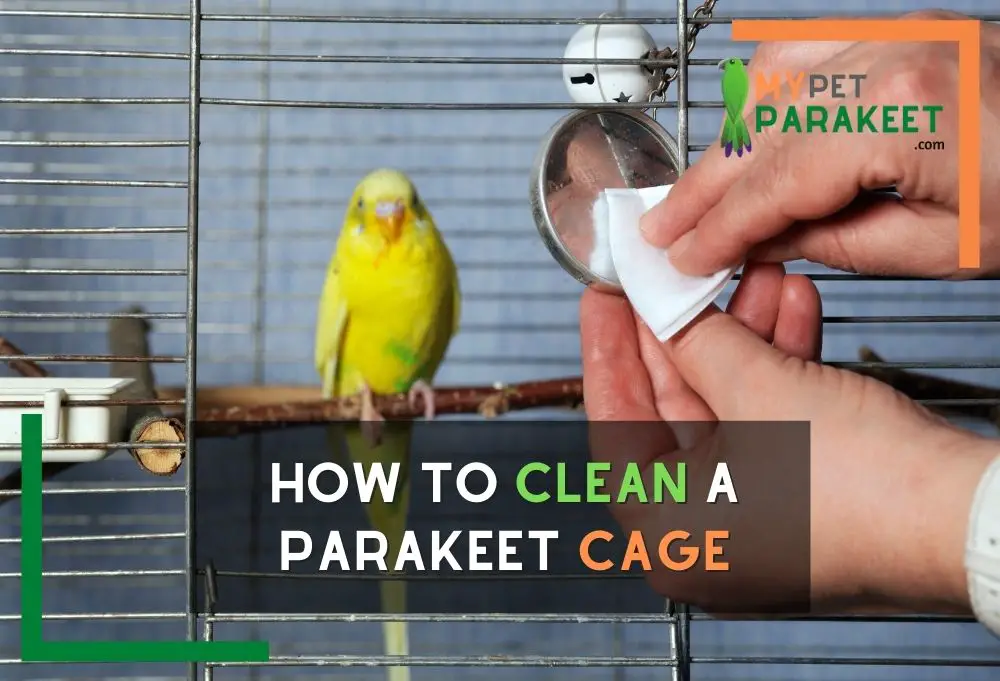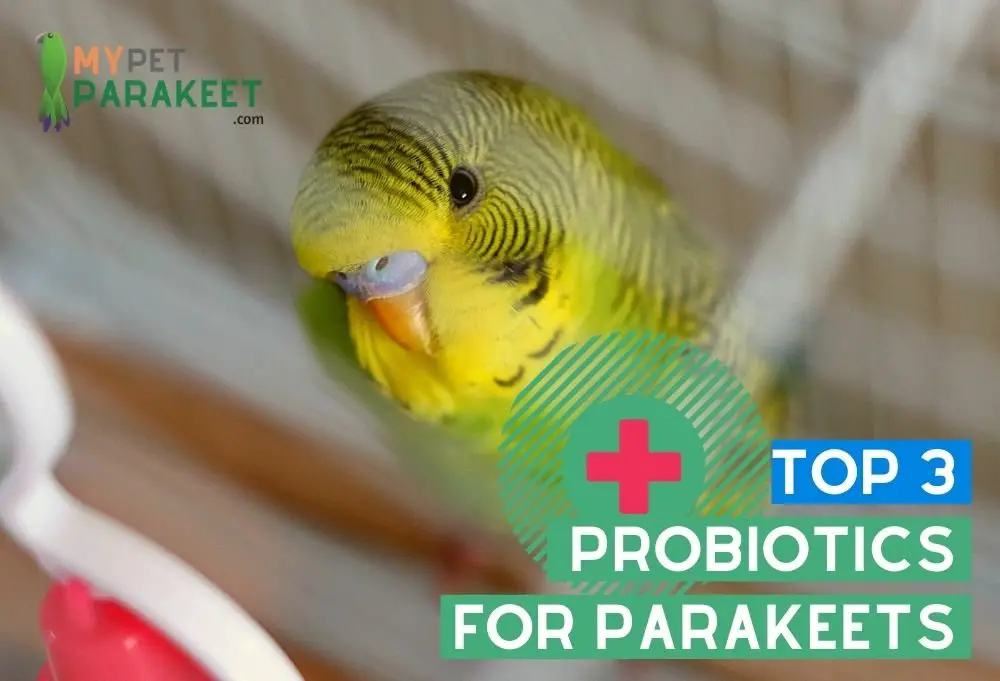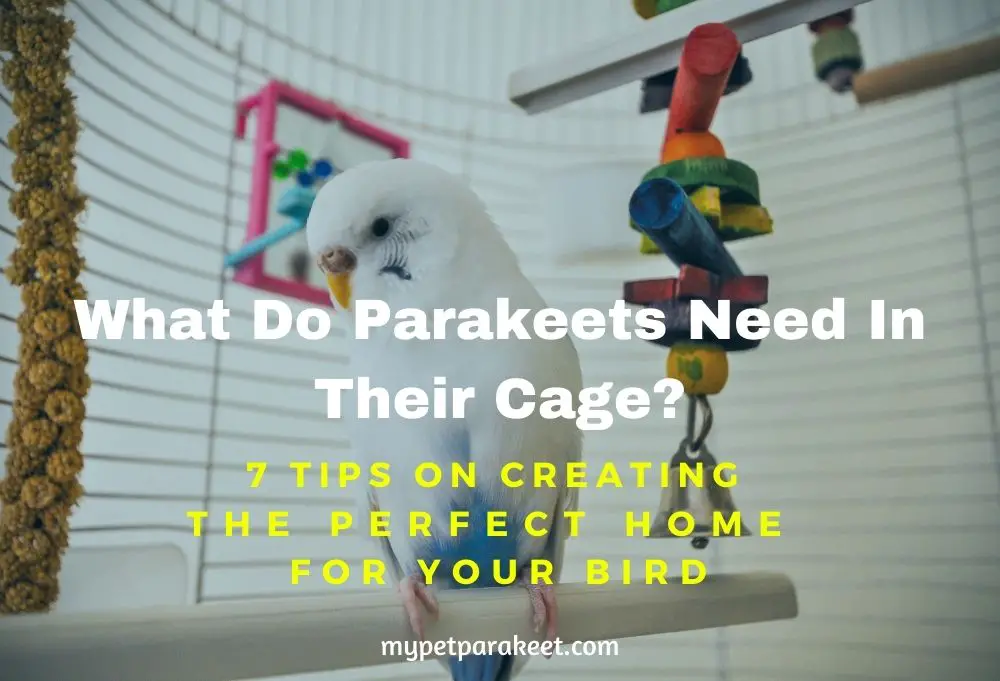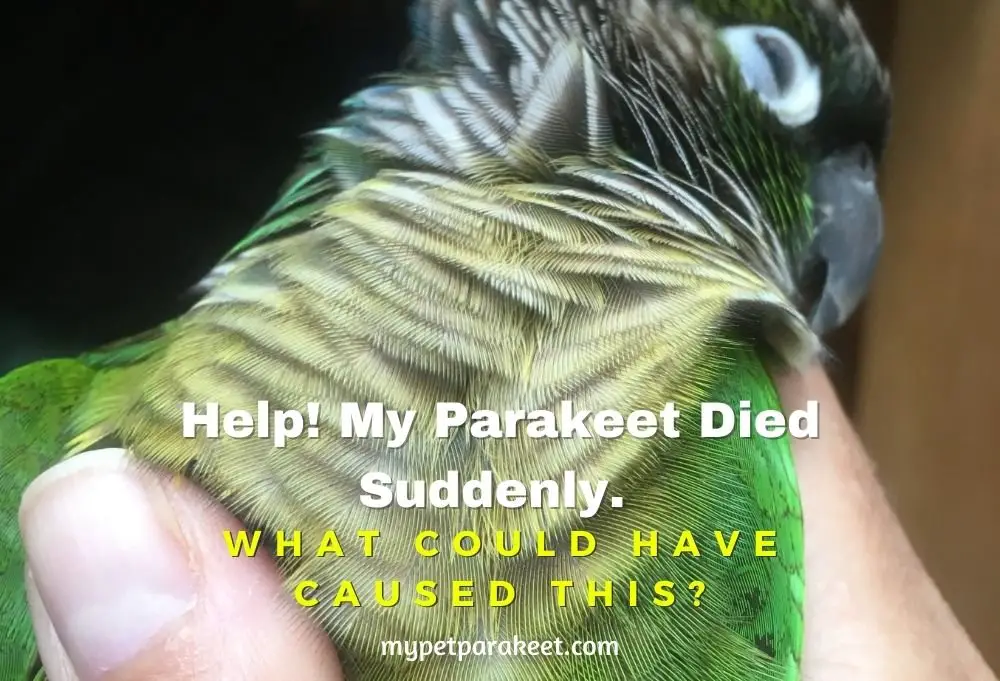Cleaning out your parakeet's cage is one of the most important parts of owning one. The first step in maintaining your bird’s health and wellbeing is to keep its cage clean. Would you be happy living in your own mess? Of course not, and neither would your bird.
A dirty cage can harbor bacteria and parasites. It affects the health of your bird, and can lead to disease.
But what should you use to clean the cage? How often do you need to do it? How long does it take? And how can you make sure that your bird doesn't get sick when you clean its home? This article will answer all those questions and more!
Tips On How To Clean A Parakeet Cage

- When you clean your bird's cage, never leave them unattended. Make sure the cage and accessories are dry before returning to the parakeet or they may become sick from residue on their habitat.
- Clean the bottom of your bird's cage every day or every other day to remove any soiled paper and replace it with clean papers made from newsprint, cardboard, recycled newspaper, or safe litter like crushed walnut shells.
- Soak the cage with a pet-safe cleansing agent, then scrub to remove any debris. To avoid health problems, it is important to not let poop build up on the cage.
- Clean the rest of the cage on a weekly basis using warm water only. Not doing so will make your bird sick and can infect you as well if mold is present in dry fecal matter that has become airborne.
- Rinse your parakeets food and water dfishes as you woud wash your own cups and plates.
- You should be scrubbing, disinfecting, and rinsing the perches and toys at least once a week.
How often should you clean your parakeet's cage?
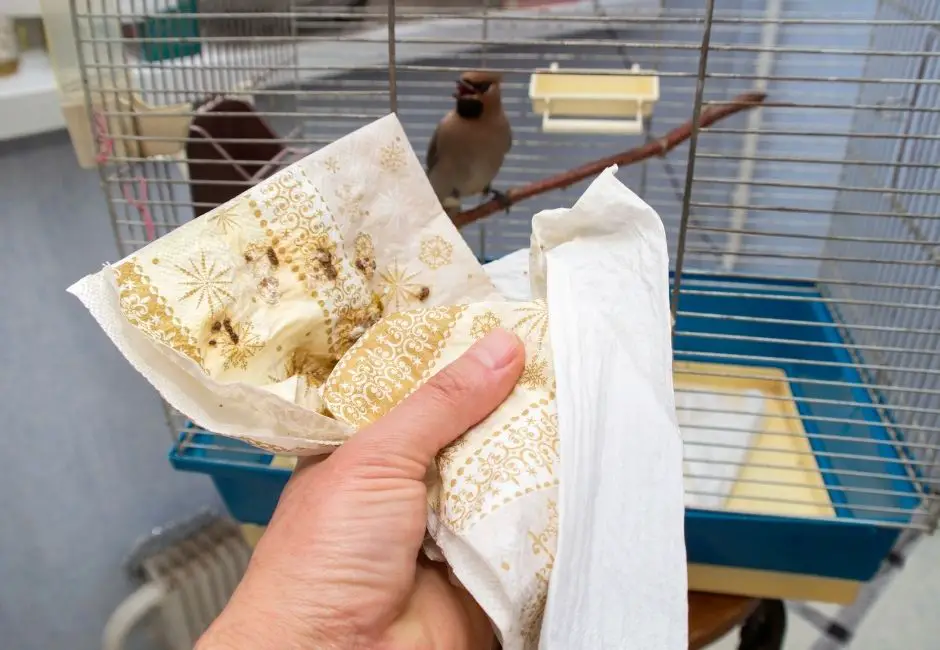
You should clean the cage once or twice a week. This includes cleaning off the bottom grating, bars, and perches. How often you clean the rest of the cage depends on how much soiling (poop, food) your bird leaves in its cage.
How To Clean A Parakeet Cage The Natural Way
Vinegar
Cleaning a parakeet cage with vinegar will remove the buildup of urine and droppings in the bottom of the cage, and it's also a good, natural disinfectant for your pet.
Just fill up a spray bottle with white vinegar, diluted by 2/3 of water.
Spray the cage down thoroughly with the vinegar solution (you can use a sponge or old toothbrush to get in between the bars). Then, leave it alone for about an hour and allow time for it to work its magic.
Afterward, simply rinse out the cage completely and let it dry. Be sure to replace all food and water, too.
Peroxide
Another option is to use peroxide to clean your parakeet's cage. While it can be used for a variety of things, one that is important is cleaning.
Just dissolve 1 part peroxide in 30 parts water and use this solution to thoroughly spray the inside of your bird's cage. This disinfectant will help get rid of buildups of feces and urine, and it will kill bacteria.
One thing you should remember about using peroxide is that this substance can be harmful to parakeets, so don't leave the cage unwatched during cleaning or afterward.
Water
This may not seem like a common way to clean your pet's home thoroughly, but it really works in getting rid of all the grime that has built up over time in the cage.
All you need to do is soak the cage in hot water for at least 15 minutes, and it will get rid of all the feces and urine that has built up inside.
You can use a brush to scrub off any food or dirt that is on the bars or floor of the cage before and during the time it is soaking.
Just make sure you dump out any water that falls outside of the cage, so your parakeet doesn't try to drink it.
Lemon Juice
Lemon juice is another good, natural disinfectant for cleaning parakeet cages. It is strong enough to clean and disinfect any part of the cage without damaging your pet's feathers or skin.
To use it, all you have to do is add some lemon juice to a bowl filled with warm water and dip a cloth into it before scrubbing off any buildups in the cage with it.
Be sure to rinse the cage completely before placing any of your pet's belongings back into it, and let it air dry.
Baking Soda
This is another substance that can be used in place of a disinfectant for cleaning parakeet cages. It will not only remove stains from cages and liners, but it will also kill any bacteria that has built up or may try to grow in your pet's cage.
To make this substance work best for cleaning, add enough water to baking soda to create a paste before using it on the inside of your cage, and use a hard brush to give it a good scrub.
You can also brush it directly onto the bars of the cage.
Grapefruit Seed Exctract
Grapefruit seed extract is a great, non-toxic disinfectant that you can use to clean any surface inside your parakeet cage that has been exposed to the bird's waste.
Use one drop per ounce of water and fill up a spray bottle with it to use around the cage. Spray this disinfectant and let it sit for at least 30 minutes before scrubbing off with a hard brush.
Be sure to rinse everything thoroughly afterward, as well as letting the cage air dry completely before putting anything in there again.
Using Store-Bought Cleaners
If natural remedies are not your thing, you can try using a bleach solution or other store-bought cage cleaning products.
Bleach
To make a bleach solution you need to mix 10 parts bleach with 90 parts water.
Of course, bleach is very toxic, so be sure rinse everything thoroughly and let it dry before returning your bird. Also make sure the place is well ventilated while cleaning with bleach. You do not want to open windows if your bird is out of the cage perched, he might just fly away! But if you are washing the cage in another room, closed off from your parakeet, always open a window for fresh air and let it air out before returning it to your bird's room.
Commercial Cage Cleaners
There are other commercial cag cleaners available and many bird-safe options to choose from. These typically use enzymes and other natural ingredients.
Cage Deodorizers
You can also purchase cage deodorizers, however, it can be argued that if you need these, you aren't doing a good job with cleaning the cage!
The best way to make sure that your bird doesn't get sick when you clean its home
To ensure your bird doesn't get sick when you clean its cage, there are a few things that are important to do.
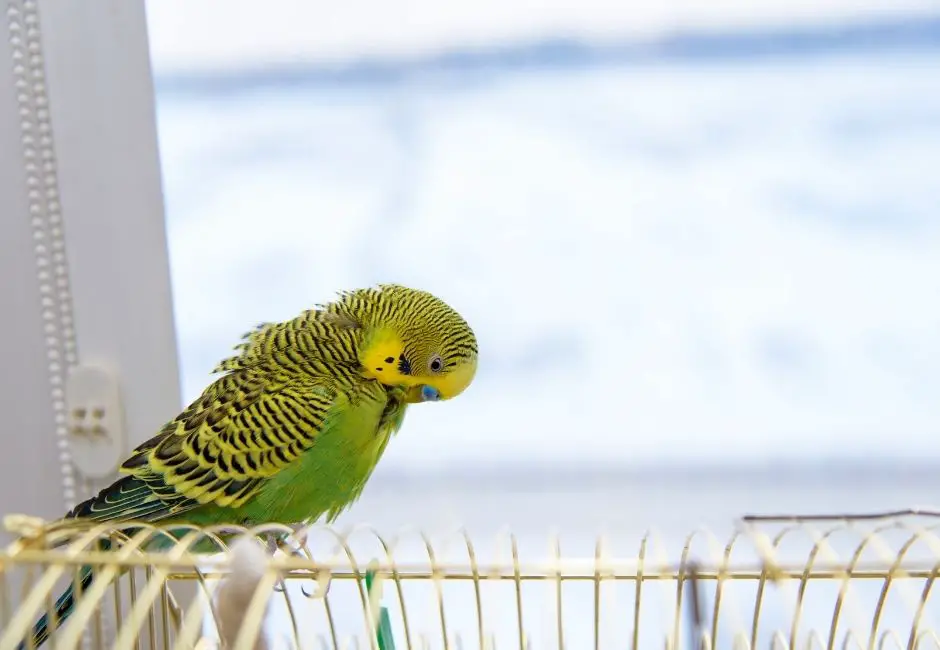
- To begin with, it is very important to keep everything that has come in contact with your parakeet's waste far away from its environment. If you clean his cage with a sponge or old toothbrush, further soak them in disinfectant before putting them away.
- Also, be sure to thoroughly rinse anything which has come in contact with your cleaning materials. This will get rid of any bacteria, which can be harmful to your bird if they get wet and left on the cage bars or floor.
- Lastly, keep all cleaning materials out of reach of your parakeet until you need them again.

